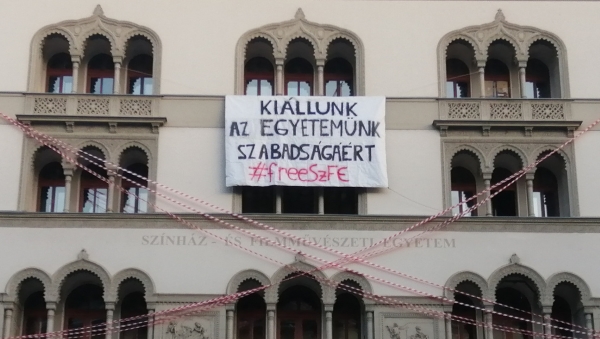On Tuesday, the Hungarian Government submitted the “Stop Soros” legislative package to the Parliament. Its real purpose is to silence members of civil society who are critical of the Government. The Act would ban the criticism of the Government and the protection of human rights.
Based on the legislative package:
- any association or foundation critical of the government could be branded as “an organization supporting migration”;
- the protection of human rights and opinions critical of the government would be subject to the authorization of the Minister of Interior and could be subject to sanctions in the absence of such authorization;
- authorized organizations would be required to pay a 25% punitive tax on the foreign support they receive;
- the Minister may ban any Hungarian citizen from an 8-km-deep border zone;
- the Minister has unlimited discretion, which not even the courts can overrule.
a. All three bills contain the term “Stop Soros”, thereby openly targeting civil society organizations that have been specifically under attack from government propaganda, hammering home their connection to George Soros, for years. The point of any law is to lay down general binding rules applicable to all without distinction. The “Stop Soros” bill is different: it aims at manipulating the rights and obligations of specific entities, which is an abuse of legislative powers and violates the constitutional principle of the rule of law.
b. While the previous draft bill was aimed at supporters of illegal migration, the bill now submitted to the Parliament omits “illegal” and deems the organizations concerned as “organizations supporting migration”. The bill no longer tries to hide that it covers, and applies detrimental, punitive legal consequences to, lawful conduct rather than illegal activities. The definition of the scope of forms of conduct that support migration still does not comply with the constitutional minimum requirement for the clarity of norms, as the legal definition also includes “other” support for migration. This is not changed by the fact that the bill lists, in a non-exhaustive manner, some activities deemed as such, including protecting rights, legal representation and expressing views in support of migration. The examples included in the bill made it even more clear that the verbal expression of views critical of the government and even participation in national rights protection processes would result in sanctions. This is a gross violation of the freedom of opinion and the right to protection.
c. Freedom of association is a substantive right: its exercise, the operation of civil society organizations, may not be subject to state authorization. The powers of authorization of the Minister of Interior, which, with reference to national security risks, grant unlimited discretion to determine whether a civil society organization may conduct its, otherwise lawful, activities, violates the freedom of association. As a minimum under the rule of law, independent courts should be able to review decisions restricting fundamental rights in terms of both form and content. Ignoring this, the Minister’s decision may not be reviewed by the courts on its substance. The national security examination would require a decision by a two-thirds majority of the National Assembly, but the unconstitutional authorization system would be put in place even without a two-thirds support.
d. According to the bill, organizations supporting migration would be required to pay a 25% punitive tax on the support they receive from foreign funds. To be exempt, organizations would have to prove that foreign funds did not serve to support migration. The punitive tax attacks the financial basis of civil society organizations, as is the prospect under the bill of denying public-benefit organizations and their supporters tax benefits.
e. Similarly to its predecessor, this bill empowers the Minister to ban any Hungarian citizen from the zone along the Schengen border. There is no legal guarantee related to this measure, which severely restricts the freedom of movement. The bill does not even allow for a judicial review of a decision on its substance.
It should be clear that although this legislation now attacks a clearly identifiable circle of organizations, it may later on be turned against anyone, as the Government sees fit. The Government may conclude at any time that criticism of its health, education or fiscal policies is making its fight against migration and its fight for sovereignty harder and the application of this legislation should be extended to such views, because whoever is not with them is against them. The current text of the bill makes this possible without requiring any amendment.
February 14, 2018






